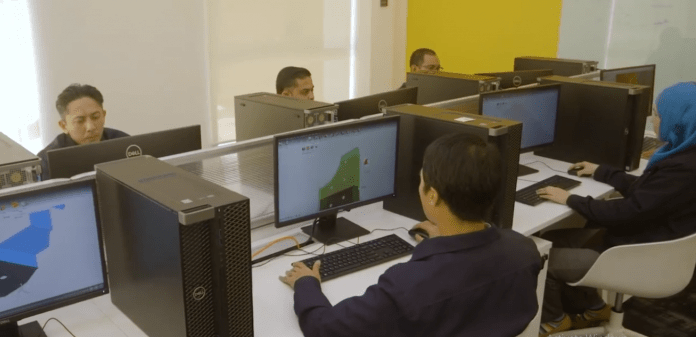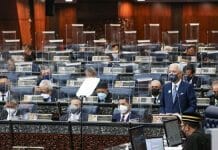By Dato Madani Sahari, Chief Executive Officer of MARii,
The Malaysia Automotive, Robotics and IoT Institute (MARii), an agency under the Ministry of International Trade and Industry (MITI), has been developing numerous solutions to allow the Small and Medium Enterprise (SME) sector to digitalise their entire business value chain and deliver better and more cost-effective products and services based on smart and intelligent manufacturing practices.
These initiatives by MARii, combined with many other initiatives by the government and industry has made digital technology accessible, allowing for emergence of local market players in new areas such as Mobility-as-a-Service (MaaS).
Digital technology has its greatest advantage in its flexible approach. These technologies are designed to be integrated into existing processes, making it easier for local business owners to reach higher digitalisation levels, without having to invest large sums. They are also able to exist within the same ecosystem of companies that are part of these programmes, creating tremendous networking opportunities and connectivity within the supply chain.
Digitalisation has seen increasing demand and popularity recently since the Covid-19 pandemic forced solutions for continuation of work-related activities without having for all its workforce to converge in a single physical location. Besides enabling the continuity of businesses and economic activities, the application of digital technology has also assisted companies in reducing travel time and increasing time spent on work – resulting in increased productivity and efficiency.
To assist local SMEs and start-ups into digitalisation, MARii has developed the Industry4WRD Technology Platform (MITP), designed as a one-stop advanced production management solution to drive the country’s Industry 4.0 adoption.
The holistic nature of this platform enables seamless integration through a singular solution to monitor and analyse company-wide operations in real-time, allowing business owners to continuously improve their product offerings, functionality, and competitiveness.
MARii, together with its technology partners has also embarked on various business enhancement programmes to accelerate the digitalisation of the economy while promoting the adoption of digital tools and services to bridge the gap between companies and digitalisation.
Programmes like the Technopreneur Development Programme Xpress (TDP Xpress) were specially formulated to facilitate the adoption of digital technologies in micro businesses and SMEs to infuse data-driven decisions into their business strategies and operations in a short timeframe of one month, fulfilling the needs of businesses recovering from the economic impacts of the pandemic.
In light of trends towards shared mobility to the e-commerce industry, MARii initiated a programme in 2019 called “MARii MaaS Scale Up Programme” – dedicated to facilitating the adoption of MaaS-related technologies and services into the domestic mobility industry to enhance and accelerate the implementation of shared and connected mobility.
The programme leverages on smart corporate partnerships with “MARii MaaS Scaleups”, consisting of 10 domestic technopreneurs utilising MARii’s in-house MaaS and e-commerce solutions to enhance the development of an e-commerce technology ecosystem through 5 focus areas – Sharing Concept, Multimodal Transportation, E-Payment, Connected Living, and Telematics.
Prominent efforts have also been expedited by MARii to help homegrown car manufacturers utilise and adopt digital tools in the production of vehicles to accelerate high-value design, cost optimisation, and talent development among local automotive and mobility component manufacturers in the era of digitalisation.
One example includes the establishment of the MARii Simulation and Analysis Center (MARSAC), developed in collaboration with PROTON. This facility allows engineers to perform digital simulations and utilise digital twin technology during the validation phase of automotive and mobility-based parts, components, systems, and processes.
MARSAC is based in MARii’s headquarters, Cyberjaya and is equipped with 15 high-performance workstations, powered by MARii’s High Performance Computing servers which enable real-time data analysis and cloud-based operations.
Synonymous with the digital economy, these applications of data-driven technologies will no longer reside within their isolated sectors, but eventually will need to be integrated across the board within business and government databases to ensure that a complete ecosystem is established.
Through national frameworks such as the National Policy on Industry 4.0 (Industry4WRD), the National Automotive Policy 2020 (NAP 2020), National e-Commerce Roadmap, as well as the national BDA, AI, and Cybersecurity frameworks, Malaysia is developing the entire value chain to implement best practices that caters to the data-driven economy of tomorrow.
MARii has also contributed to the fight against COVID-19 by using digital technology and platforms to break the chain of the virus. Developed in collaboration with Sengenics Sdn. Bhd., the ImmuSAFE™ Tracker is equipped with intelligent contact tracing capabilities utilising MARii’s existing Big Data Analytics (BDA) and Artificial Intelligence (AI) platforms.
The tracker offers the capability to track the mobility and contact tracing information of individuals, as well as employee logs, supply chain information, SOP enforcement of businesses, all in real-time.
The writer is the chief executive officer of the Malaysia Automotive, Robotics and IoT Institute (MARii).









